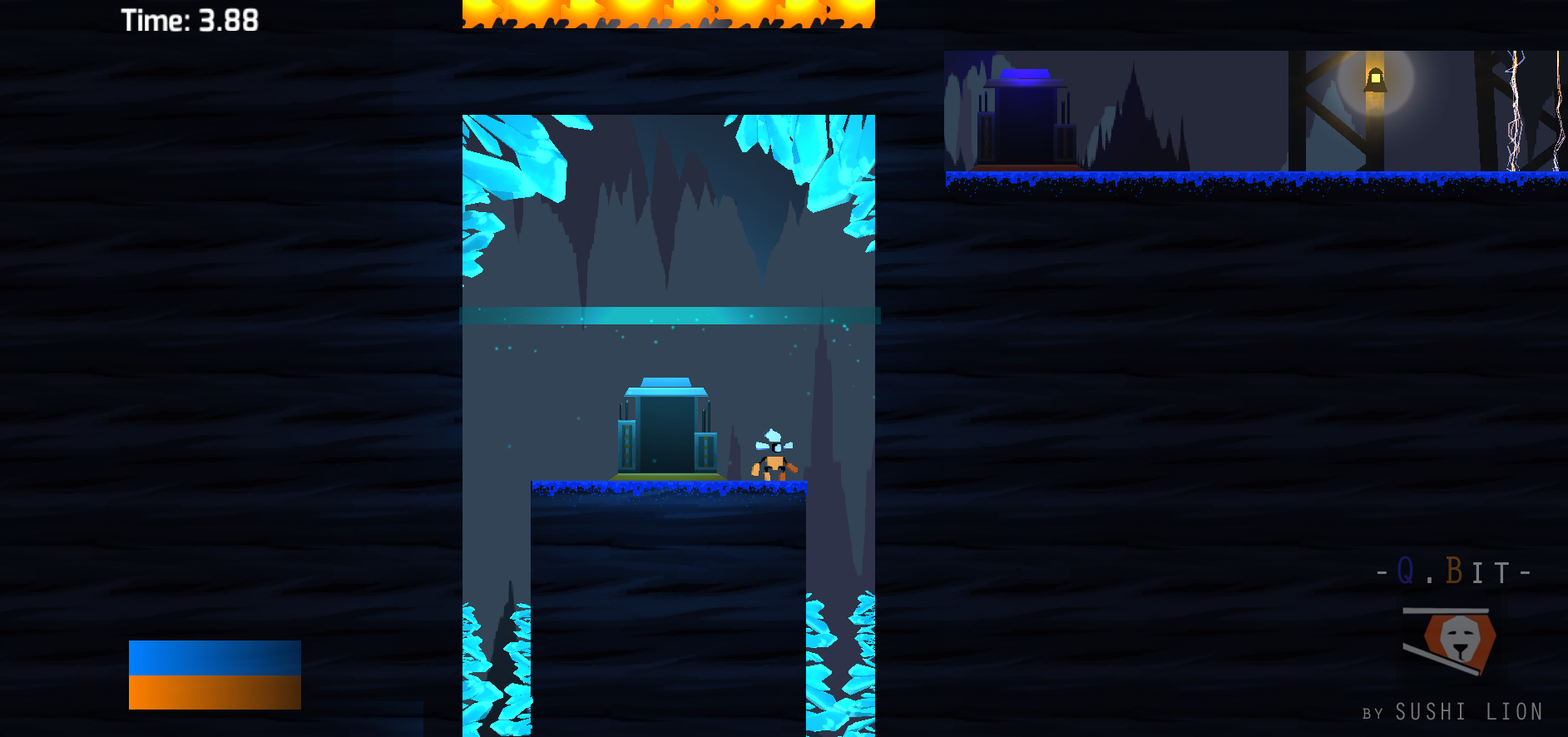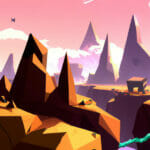1-Can you tell us a bit about yourself and your gamedev experience?
Sure thing! So my name is Michael Zupecki and I’ve currently completed about 27.16 laps around the Sun. I enjoy reading, cooking, science, snowboarding and, of course, games – including the playing, discussing and making of. At the risk of this sounding like an eHarmony application, I’ll stave my desire to discuss my favourite Seasons and the like. (Winter, it’s definitely Winter).
So as of this point in time, I have around four years official industry experience working on a variety of genres, scopes and platforms. I suppose, though, unofficially, you could say I’ve been working with games for about seven years and I’ve been enjoying them for about twenty four years… and enjoying them, in a way, counts as work. I remember loving the day I got my first gig and I could turn around to my Mum and say “Ha, I get paid to do this now!” Revenge can be so sweet.
The roles I’ve found myself in have typically been Writing and Design – being the areas that interest me and happen to fall more comfortably into my skill set than, say, art or programming (although that is beginning to change). I’ve also been a game tester and that is sort of where I got my start – the perfect segue after I share the things I have worked on!
The list of titles I have worked on isn’t that extensive at this point in time, owing to the fact that I returned to University 3 years ago and am currently 10 weeks out from finishing – woooooo!
I’ve worked on the following titles, some unreleased;
- Space Chimps – Tester – X360, Wii, PS2, PC.
- Bring It On – Designer – Wii – unreleased.
- Scooby Doo! and the Spooky Swamp – Designer and Lead Writer – Wii, PS2, DS.
- imagirO – Concept and Design – 3DS – unreleased.
- Druidic – Concept, Design and Writer – Next-gen – unreleased.
- Untitled RTS – Writer – unreleased.
- MacGuffin’s Curse – Writer – iOS, Android, PC.
I’m currently working on two small projects for University, but which are designed to have potential as indie projects.
- Q.Bit – Concept, Lead Designer, Sound – unreleased demo.
- Oculus – Concept, Design – experimental prototype phase.
And of course, outside of this, there are always plenty of ideas that are mentally explored, destroyed or banked. I think the constant bane of the creator is the endless ideas and endless potential that either has to be squashed into something achievable, or squashed altogether due to not having the resources of time to pursue it.
I suppose the other thing to say here is that, looking at the list of things I have worked on, most of them are unreleased. This happens and is completely normal – there are people out there who have made careers off unfinished works… it’s a real shame but, for one reason or another, sometimes games don’t get finished. They’re a complex and trying beast to wrangle… but that’s also part of the fun!
This business is definitely not for the faint of heart!
2-How did you get that first working experience in the game dev industry? what would be your advise for some our reader who would like to work in it?
My first industry gig was working in Quality Assurance, which is a fancy, bureaucratic term for tester. I was working on a game slated for the Nintendo Wii, PS2 and Xbox 360 – a platforming game based on an American Film license; Space Chimps.
This project had all sorts of production problems and I was brought on in the last three months of the development cycle. By this stage the game had already been in production for fifteen months and the entire game was re-designed in the last three. In games we refer to the moments leading up to a milestone as crunch and this crunch lasted for three months straight. During the course of this there were schedules drafted and realizations happening – there was too much work for the development team to get done. I’d often stay back late at night, after I finished my testing work, and help with minor level design, collectible placement and I also ended up designing the final boss fight… which was really cool! It’s nothing incredible in terms of what’s out there, but it was my first experience and I learned a lot during my time there.
After this I was moved onto a team where I was one of two game designers on another licensed title that was destined to never see the light of day; Bring It On. Yes… Bring It On as in the cheer-leading film *shudders*. I had to watch all of those movies several times and if you weren’t aware there were sequels… there were… and, well lets just say the original film is Oscar worthy by the time you get through all of those. So I spent my next 9 months or so designing dance routines for the plethora of music. I’m still haunted by Brick House and I’ll probably even opt for a sandstone house when I get around to building one… just because of how traumatic designing easy, medium and hard dance routines was for like twenty pieces of music. There are some things that never leave your mind. Ever.
It was around this time that the Global Financial Crisis started really affecting the local industry – there were mass closures beginning… Pandemic went under, then Krome and we were sort of nervous. Thing weren’t the best around the office at this point anyway, and I was sort of happy to go when my time came. The project was pulled by the publisher and away I went!
I sort of kicked around the idea of going to study nano-technology… mostly because I’m crazy like that. C’mon, who doesn’t want a morphing house? I actually signed up for an online course to get started… I still owe them a little money for pulling out. But you only have to pay if you ever want to study on there again… muahaha.
After a short while, a friend who was working at another company, locally, told me of a job opening. They needed a writer for their latest Wii project (Scooby Doo) and they were interested in having a chat. They took a real risk trusting the writing of a story game to, in their eyes, some twenty three year old dude in a beanie and leather jacket. I still don’t know why they hired me… maybe it was my lame jokes or firm handshake. It was definitely the hundred dollar bill I slipped into my CV.
I remember in the interview they asked me how I approach writing stories for games. Other than my resume saying I had a Diploma of Professional Writing and Editing (which I didn’t complete due to the fact that I was learning 3D modelling and level design in my homework time) I had absolutely no experience. But this is where confidence will get you everywhere. My answer was somewhat honest, but optimistic and seemingly informed. I said something like, after a dramatic pause – “Well, I’ve never written on a game before in a professional capacity. I’ve written my own work, including short and long fiction, as well as game stories and the like. This is also a bit different for me since it’s an existing license. However, I would approach it like this…” I then gave an on-the-spot break-down of how I would approach it.
So they took a massive risk on me, and I’m forever grateful for that. What proceeded was the most challenging time of my life up to that point and, in many ways, still the most challenging yet. You go through all these emotions, all of them driven by a sort of fear of the unknown. You feel you have this responsibility to do a good job – not only for yourself but also for the team and for the fans. You sort of get entrusted with this volatile thing… volatile because it has to go through you and at that point you don’t even know what it’s going to be. I remember thinking “I grew up with this cartoon… and now I have to contribute to it? But who am I? I’m just some guy… I don’t know what I’m doing. What if I ruin this thing that I love… and something that the world loves? What if I’m that guy?” – I mean, you have to be careful with this sort of thinking. It can paralyse you, but it’s also powerful – it sort of kicks you into the next echelon of your ability… it means you really care. I’ve since discovered that life is about constantly feeling like that – if you’re comfortable it means you’re not trying hard enough… it means you’re not on the precipice of your current ability.
When you’re constantly pushing into the dark, it’s no wonder you can’t see. You just have to feel your way through it before you can look back and see where you’ve been – and it’s nice to look back at where you’ve been and you can say “I did that. I was there,” but it’s also important to turn around and face the dark again.
For me the next chunk of darkness was University. You definitely don’t need to go to University to work in games – but you also have to be very motivated to sort of learn the required skills yourself. It’s not an easy thing to do and, if you’re like me, you might need a bit of a whip cracking behind you in order to push you where you need to go. I mean, I’m very self sufficient, but I’m also interested in millions of things and it can sort of get overwhelming – sometimes it’s nice to have a structure to follow… a place to be and something to staple yourself to. That time is about to come to an end and I’ll be able to look back at the once-dark space and see what I’ve done… but then I’ll have to face the dark again. I’m already sort of working out what that next chasm is for me – it’s either another degree, in Computer Science (a fear I used to have but am now moving beyond), or trying to get an indie title off the ground.
Perhaps I’ll try and do both at the same time – because I’m crazy like that. The reason for Computer Science is that learning programming is a must. Well it’s not a must in a literal sense… but it sort of is in a life sense. Like, I’m a firm believer that if there are two options in front of you, you should take the one that scares you. It means you’ll grow the most and emerge better off. I was afraid of programming for the longest time but now I’ve been writing small to medium sized programs, for University, in Java and C and I can tell you that it’s worth it. It’s worth it because it’s all tools and if you want to be a great designer, not a merely a good designer, you’re going to want to be as autonomous as possible. Autonomy is power.
3-Can you tell us about your current projects? (technologies / frameworks / languages used, include screenshots, you tube trailers, links if any)
So I briefly mentioned earlier that I have a demo from University, and an experimental prototype in the works. The first one, the demo, is an action platforming game called Q.Bit.
It’s heavily inspired by old-school games and the more recent Super Meat Boy by Team Meat. I love those games where you become your own reward – your perseverance directly translates to the payoff. I learned about this concept in Psychology – the more time your brain spends with something, the more weight (in terms of importance) you put onto something. This is outside of your control, it’s innate. But we’ve all felt that before… that compulsion to stick with something and overcome the challenge. In life this can be translated to things like gunning for that job you’ve always wanted, or something trivial like driving around in search of the perfect meal that you have in your mind… going to those lengths, the payoff will be all the more sweet. They say you can’t have the sweet without the sour, and the good without the bad – and this is true, in a less poetic way. Life is all about contrast, and so good game design follows that – it pushes you, but not too far. It pushes you just enough, into that dark place where you can’t see. It lets you fumble around for a bit – you bang your shins a little but you swallow the pain. You keep going because you must. Then you achieve it. You find the light switch and the darkness is replaced by accomplishment and you feel like you can do anything.
That’s the sort of philosophy, to me, behind games like that.
We’ve sort of taken that core idea of what makes a game fun, in that genre, and added our own little twist. It’s like Meat Boy with one more layer of sauce over it. We’ve showed it around to a few people and there is a little bit of buzz around it – which is great. A local company wants us to pitch a touch-device version, a marketing company wants to help us get funding and the founders of PAX want to play the demo – this is all great. But, again, those feelings of “Wait a second… who am I really? I’m just some guy. This is stupid.” emerge and you have to squash them down! So people might be seeing more about this very soon!
The other project is an Oculus Rift and Hydra demo. Since Q.Bit, which was a team of four, we’ve grown the team by two, maybe even three, people in order to aim a bit higher. We’re still roughing out exactly what it is and it’s going to be less of a ‘game’ and more of an interesting space to visit. It’s sort of hard to talk about the moment because it’s still changing a lot – but what I can say is that it’s vehicular and large in scale. You will get to experience flying through the clouds of another planet and seeing what’s underneath them on the surface. You’ll be able to break out above them again into a clear blue sky and watch the sun rise or set. That’s the sort of experience we’re going for. But University does have its own challenges – so we’ll see where this goes!
The fact we’ve settled on a vehicle game sort of segues into the next question, so I’ll go into that there and explain how it sort of helps the experience along a little.
For all of the development at the moment, we’re using Unity, C# and other external software like Photoshop and Maya – these are fairly standard in game development. A lot of indies are flocking to Unity because of how accessible it is – it has really taken off the last few years. C# is a high level coding language that is pretty intuitive to use, where coding is concerned, as it takes certain liberties for you and you can focus more on functionality and less on low level interactions. I think people are pretty familiar with what Photoshop is and Maya is one of two widely used 3D modelling software packages out there – it’s a fantastic tool in my opinion!
4-How did you come accross a project like Oculus Rift? what has been the reception among people with cognitive dissonance.
I tend to hang around a lot of online forums and websites that deal with games and game development – the key one is Gamasutra. When you hang around those places, news spreads fairly quickly! And so this one day the internet became flooded with this new piece of technology designed by a guy in his parents basement in California. It’s, essentially, the worlds first commercially viable Virtual Reality headset – otherwise known as a HMD (Head Mounted Display). This guy, Palmer Luckey, is a VR enthusiast and he started getting a lot of attention from big wigs like John Carmack, Cliff Bleszinski and Valve’s own Gabe Newell. Naturally when these guys are interested, the whole world pays attention.
So Oculus went to Kickstarter, the crowd funding website that recently exploded due to Double Fine’s success with their indie game, and they basically blew their goal by several millions of dollars. I jumped onto it in the early days and threw $300 at them for a development kit. It seemed to synchronize perfectly with my last year of University and I’m also a massive VR geek – any chance to get my hands on this sort of thing, and the earlier the better!
To bring it back to our Oculus project for a second, in order to touch on your question about the dissonance people can experience this technology, we decided to go with a vehicle game because of the inherent limitations with the technology. See, the Rift has this weirdness to it… if you’ve ever put one on, you’ll know what I mean. It’s absolutely incredible in terms of what it does for you – you feel like you’re actually somewhere else, except it’s kind of meshy and not photo-real. But the brain believes the space exists, which is phenomenal.
But this creates a weird problem that, as you mentioned, is referred to as cognitive dissonance. If you’re sitting in a chair, and you put the Oculus on, and you’re playing a game where the character us standing – say an FPS – there is this disagreement in your brain about what’s happening. Your eyes are reporting that you’re tall and standing, and your body is telling the brain something different and it results in your brain sort of saying “Umm. Am I sitting or standing?” and that results in a weird sort of feeling. Likewise with walking – which is the biggest hurdle for Virtual Reality. Seeing and looking around is intuitive, that’s how we interact with the world every day. But walking with a controller is not intuitive… it’s abstract and sort of stupid where VR is concerned. Once again there’s this discrepancy between “I’m walking. No I’m not” going on and if you watch people play while standing, they actually tend to sway a little when they walk around in the game – it’s that powerful.
So what I’ve found so far is that game where your brain expects your stature to be something close to what you’re doing in real life – whether it be standing still or sitting – work the best. Obviously standing still is limiting – you want to move around in a 3D space… that’s sort of the entire point. So sitting works really well and we’ve sort of got this concept where you can fly around and look out of the completely transparent cockpit. This will allow for minimal dissonance while tapping into what the Oculus does well – the feeling of presence… and maybe a little bit of vertigo!
5-Can you tell us about the Juzzfilm gaming documentary?
A friend of mine is a professional camera-man – that’s his whole shtick. He’s worked for Channel 10 for a number of years and has done some other, more engineering type work. He wanted to make something out of work hours, something where he could be expressive and experimental – he wanted to have a go at making a documentary. He didn’t have a budget, or anything, just a camera and time and I think he did really well for his initial foray into a short documentary piece.
He just sort of hit me up and asked if I was interested. I love talking, in general, and I love talking about games even more, so it was a pretty natural thing. He sort of cobbled together some other people he knew – another buddy of ours who is in game development too, a collector and a friend of ours who plays video games a lot and has entered some competitions and the like. With that he aimed to sort of cover all bases with it and I think he succeeded there.
The shame with stuff like that, though, is you sort of watch it back and realize you said things in a less-than-clear way, or something you wanted to be in there didn’t make the cut. There’s this one part where I say that I play Call of Duty – which I actually don’t. I mean, I have played it before, but it’s not something I play all the time. It might be something I’ve played around with for some quick, disposable action but I’m more inclined to play obscure games like Machinarium, Journey, Fez, Bastion, Thomas was Alone, Dear Esther and other games like those. But that sort of stuff didn’t make the cut and I watched it back and I thought to myself, “Here’s this guy who is supposed to be versed in the area of games and he says he plays Call of Duty,” which, to me, sounds sort of limited. I mean, I think CoD has contributed a hell of a lot to the genre but it’s sort of stuck in this profit-stagnation where it can’t be anything other than a slightly better version of what it already is. It came, it contributed and now it merely is.
All in all, getting to talk about what you love in a professional capacity is always fun, though, and I do think he did a good job of pulling it all together.
There’s another documentary in the works at the moment, it’s called Game Loading: Rise of the Indies. It’s on Kickstarter and it’s being made by a lovely guy, Lester, and his wife, in Melbourne. It’s going to be a chronicle of the whole indie space – where it came from, where it is and where it’s going. I’ve backed the campaign and we’re going to have some footage of Q.Bit shown in there, which is exciting.
I recommend anyone who likes this sort of thing to check out their Kickstarter page and get involved. At the time of this writing there are 10 days left for them to hit their milestone. I really hope they do, it’s looking to be something really special!
6-What advice would you have to people who are getting started with game dev?
Hmm, what advice? I could go the route of Phil Fish and urge you not to do it! I tend to get a little manic like he does – I actually sympathize with him because I can relate. It’s not a good way to be, but people like us are sort of trapped… what we do hurts us because it’s confronting, but we can’t stop doing it because we have to do it. There is nothing else for us on this Earth, in a poetic sort of way.
So I guess that’s one thing – is there anything else you can see yourself doing? If the answer is no, welcome aboard.
The next part is really about skills. I mean, it’s all well and good to know you want to do something – wanting to be a Doctor is fine… but you can’t just walk into an office with a suit and tie and start asking people to open their mouths for your paddle-pop stick. Oh God, the double entendre!
So there’s that – it’s useful to sort of know what part of the whole thing interests you and it’s not enough to have ideas. The areas that are typical of game development are design, programming and art. Both 2D art and 3D art are welcome, but your chances are usually better if you can do 3D work as 2D is quite competitive in the commercial space. Obviously being able to do both makes you an invaluable asset and that’s really the way in – make yourself into an indispensable tool!
Design is sort of a flimsy thing to set out to do at the beginning. I mean, that’s what I set out to do and I was extremely lucky. Like, extremely lucky – sometimes I don’t know how it happened. But design is sort of elusive – you have to show, somehow, that you have a deep understanding of video games. If you can’t program something basic in Unity, try to get some detailed documents together showing depth and nuance of your understanding of game theory. But if I were starting again, I’d do what I’m doing now and really learn how things work – a designer should know how to do a bit of everything… you’re part artist, part programmer and ALL glue. You have to be able to talk to people who are deeply skilled at these things and it’s no good if you don’t understand what it is that they do for you.
I once heard it put like this – if you only have ideas, get in line behind the guy who can code and the girl who can draw… they have ideas too.
If you want to be an independent game developer, there’s good and bad news where that is concerned. The good news is that if you’ve written down an idea for a game then congratulations, you’re already an independent game developer and you’re in pre-production of your idea! Welcome, please leave your sanity at the front door.
The bad news is that you absolutely need to know how to do stuff. You’re a guy, or gal, with an idea and ideas don’t magically appear ready-made for you to test. They need to be broken down into parts and worked on. If you want to make a game by yourself, you need to know how to program – there are plenty of tutorials online and if you start now you’ll have something working very soon. If you’re an artist then you need to find yourself a programmer and that’s easier said than done… programmers are an elusive species and can usually be coaxed out with examples of your work, a solid plan and chocolate.
And network – network your little ambitious ass off! You really need to know people – it helps for things like advice and also for things like when you’re ready to stick your neck out there on the chopping block.
Once you’ve done all that – once you’ve agreed with yourself that you’ll not have a solid nights sleep ever again, that you’ll advance the rate of your aging and you’ve toiled away alone, increasing your skills, well… you’ve waited, you’ve practiced, you’ve learned a lot and now you’re ready to be judged. So get out there!
7-It happens often that people get stuck on their first project, I personally have dozens of unfinished game demos that accumulate over the years, how do you come across that inertia and produce finished products, even simple ones?
I’m probably the worst person to ask about this, ever. I suffer from chronic procrastination… I’m procrastinating from my algorithms homework right now by doing this interview. Procrastination, to me, is a form of getting stuck. It’s amazing how much you can find to do when you need to be doing something else – all of a sudden there’s time to cook a fancy meal, clean the house or do an interview about something!
For me that’s the biggest bane in my life and I’m actually reading a book on it at the moment. Well I’m reading that between the other three books I’m reading because, you know, I’m just SO ironic.
Finishing things is just this constant battle and it’s one I’m learning to accept and live with. But finishing things is something everyone needs to do or else you never have anything that will really do anything for you outside of yourself. There’s no real trick to getting over that hump – it’s just perseverance. There are people out there who just seem to finish things all the time… they do heaps of little things and get a lot done in terms of quantity. There are also those who start fifty things, only to complete one… but the forty-nine unfinished works were more of a journey to the great one – a sort of quality over quantity argument.
It’s really on you as a person and it comes down to what you want – do you want to share your works with others, so that you might improve? Do you want those bruises on your shins to be worth it when you finally find the light in the darkness? Do you want to be able to turn around and say “I did that?”
Or maybe you don’t want any of that… maybe you want to blaze a trail of unfinished works throughout your life… maybe you’re just crazy like that.
See you all out there!
Checkout to “Rise of the Indies“






